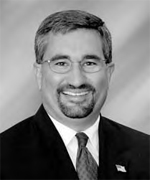September 10, 2009
Estate Planning in the Electronic Age
 By Curt Ford
By Curt Ford
Nash Nash Bean & Ford
In today’s electronic age, it seems that things are changing faster and faster. Every time we turn around, there’s a new technology and more and more information to keep in mind and safeguard.
Now, increasingly people have “electronic assets,” such as website domain names and accounts with Gmail, Facebook, Yahoo! Mail, YouTube, Amazon, Kodak Gallery, GoDaddy, LinkedIn, and Twitter, and many other websites that require an account and may store personal or financial data, such as credit card numbers. How do you handle the disposition of these electronic assets upon your death or disability? Of course, domain names are the owner’s private property like any other asset. Typically, the contents of electronic accounts like email with Yahoo! or Google’s “Gmail” are considered to be private property.
Why is this important? If you die or become incapacitated, you may want someone to delete credit card information and old email with personal data. You may want to have someone go into your email account in order to notify your friends and contacts. You may want your treasured photos, saved in online photo albums, preserved for your family members and loved ones, instead of deleted for inactivity.
There are several options on handling these electronic assets. First, you could dispose of them through your Will or Trust. However, passwords and internet presences tend to change frequently. Also, it may take some time to determine what you have and how it is to be handled. Furthermore, even though you have the legal right to transfer your Gmail account, for example, it is logistically rather difficult.
Second, you could keep a USB flash drive or other device with all of this information, together with account handling instructions. You could tell a trusted family member or responsible friend the location of the device and instructions. If this device has information which should be protected, you should keep it in a secure location. For example, you could tell the person you select that it is in your bottom desk drawer and give them the key. This would not be an ideal solution unless the person you select will have access to your residence.
Third, you could get an account with “LegacyLocker.com” or some similar company. With LegacyLocker, you can maintain information regarding your electronic assets, including account numbers and passwords. Upon your death or disability, they will release the information to the person(s) you designate. In order to keep your assets secure, they will independently verify your death or disability with people whom you had pre-selected. Once your designee has the password and account information, they can take control of the email or other assets in the account.
Fourth, you could do nothing. With that option, most email providers will simply delete all the email after a specified period of inactivity. Domain names expire after the period of registration. However, if these assets have substantial economic or emotional value, clearly this would not be the option to choose.
Other electronic assets, such as accounts with PayPal, eBay, iTunes, and ING DIRECT have real financial value. It is important that information concerning these accounts should not be left to anyone that is not legally obligated to do with them as you have directed, like the Trustee of your Trust. This also holds true for electronic access and passwords for financial assets held in traditional bank and financial accounts.
It seems things are changing now, more than ever. However, the law has not kept up with technological advances and there are many gray areas. Therefore, it is increasingly important to have an up-to-date, coordinated estate plan to handle all of your assets, including your electronic assets. Many things can change: Your plans, your assets, your family circumstances, the legal and tax environment, and, of course, your usernames and passwords. An experienced estate planning attorney who focuses his or her practice in the area can help you develop a coordinated estate plan that includes your electronic assets.
Nash Nash Bean & Ford are members of the American Academy of Estate Planning Attorneys and the National Academy of Elder Law Attorneys. To receive a copy of our most recent newsletter “Your Estate Matters” or for a free consultation on Estate or Long Term Care Planning, call 309-944-2188, 309-762-9368 or 1-800-644-5345. You may also contact our firm by email at info@nashbeanford.com or visit our web site at http://www.nashbeanford.com. The firm devotes it practice primarily in the areas of estate, business and tax planning and related areas of the law, as well as elder law and trust administration and probate. We offer guidance and advice to our clients in every area of estate planning.
This column is designed for general information purposes only, and is not intended, nor should be construed or relied upon, as legal advice. Please consult your attorney if specific legal information is desired.
Filed Under: Finance, Technology
Tags: Amazon, American Academy Of Estate Planning Attorneys, Credit Card Information, Credit Card Numbers, Elder Law Attorney, Electronic Accounts, Electronic Age, Electronic Assets, Email Account, Estate Planning Attorneys, Gmail Account, Godaddy, Google, Internet Presences, Kodak Gallery, Linkedin, Online Photo Albums, Private Property, Responsible Friend, Twitter, Usb Flash Drive, Website Domain Names, Yahoo Mail
Trackback URL: https://www.50pluslife.com/2009/09/10/estate-planning-in-the-electronic-age/trackback/


